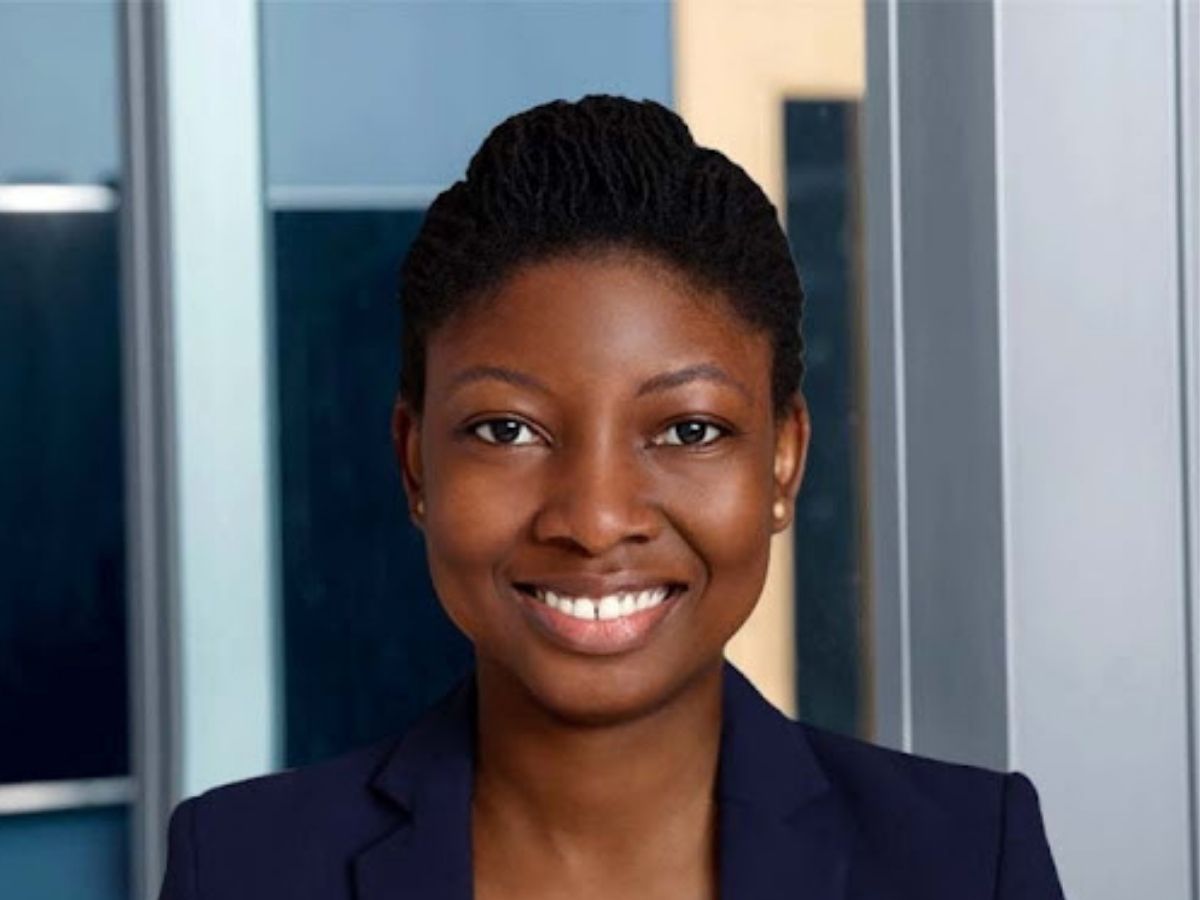Interdisciplinary research on the future of work drives timely insights
Interdisciplinary scholar and Assistant Professor in the School of Professional Communication Dr. Opeyemi Akanbi (opens in new window) is at the forefront of foundational research into the nature and evolution of work. With a background in law and communication, her research interests include the regulation of digital work, privacy and the political economy of digital media. Akanbi has been cited frequently in the media (external link, opens in new window) as of late for her expert insights into the changing nature of work and the significance of the introduction of a new law passed in Ontario (the first province in the country to do so) on the ‘the right to disconnect’— or the right employees have to be free from having to respond to emails, telephone calls, texts or electronic messages outside of work hours.

Assistant Professor Professional Communication, Dr. Opeyemi Akanbi
Akanbi earned her PhD at the Annenberg School, University of Pennsylvania and is a member of the New York bar. Her publications include articles in the International Journal of Communication and Yale Law Journal Forum.
Akanbi’s research is multi-layered, connecting the power structures of employment relationships with respect to privacy issues, to enterprise media, work culture and work hours.
Distinguishing the boundaries between work and non-work
Akanbi’s current research originated from an interest in employee privacy. She explored the potential for discrimination and bias based on the use of personal information about an employee by an employer. This could be information gleaned through social media, for example, to make judgements about a worker that could impact their employment.
“Even prior to the shift towards digital media use in the workplace, there's always been the question of what belongs to the realm of work and the realm of the personal,” explains Akanbi. “The question of whether data and publicly available information belong to the personal realm, or whether they can have consequences for workers in their workplaces.”
From religious beliefs to social media posts with political or ideological stances, employers, in theory, should not be able to use that information against an employee, asserts Akanbi.
“You should be able to freely hold your beliefs. And as long as you're discharging your duties at work, the personal and the professional should not come into conflict,” she says. “However digital technologies have become the medium through which data that belongs in the personal realm becomes accessible to employers and that comes with a real risk to work life. That's where I come in. I try to understand the kinds of situations in which these phenomena occur and what checks we can put in place to protect workers and also to protect employers where the case warrants it.”
A transdisciplinary approach to understanding the evolving nature of work

Photo courtesy of Ryerson University
Akanbi’s transdisciplinary perspective pulls from her legal background and PhD in communication, allowing her to extend the conversation about timely issues on the nature of work where the laws are slow to catch-up. Akanbi believes that the legal perspective is somewhat limited in offering answers to the rapidly changing nature of work.
“These issues require a multi-perspective approach,” says Akanbi. “The law has some answers, but the law is notoriously slow in catching-up to technological advancements. Dealing with emerging issues can be very difficult because of the absence of precedent. When courts are faced with these kinds of novel cases, they are forced to draw from societal norms.”
Sometimes the legal community takes what she describes as a ‘wait-and-see approach’ , shares Akanbi. It is in that period of confusion and answer-seeking that certain norms start to form and impact the work environment.
More than free expression
For Akanbi, boundaries are not limited to free expression and identity.
"It's also the question of boundaries when it comes to time," asserts Akanbi. “And that's what we are grappling with. When you talk about the ‘right to disconnect’, it has implications for our identities related to our work and our sense of obligation. Do we spend more time at work than less if our identities are tied up with our jobs? Is that what we want? What are the checks that we are putting in place?”
Akanbi believes these questions go to the very core of notions about work, what we think worker rights should be, and what space work should occupy in our lives.
Allowing worker flexibility in deciding how they work

Photo courtesy of Ryerson University
Where professional communication comes in is allowing us to really think carefully about the way we want to structure those policies in a very effective way that can speak to the resulting culture.
“The culture in work teams, the culture that different managers and colleagues foster is what really determines workers’ relationship to their work and the way they structure their time,” she says.
This is where Professional Communication can help strengthen a healthy work culture. “We can think very carefully about structuring those policies effectively to help redefine the work culture,” says Akanbi.
"Where professional communication comes in is allowing us to really think carefully about the way we want to structure those policies in a very effective way that can speak to the resulting culture," says Akanbi.
Where professional communication fits in this area of research is in the way the ‘right to disconnect' law is framed. Akanbi points out that the new law isn’t prescriptive; it doesn’t outline a specific set of hours, but acts as a way to impel organizations to form policies clarifying expectations around being connected to work.
“This law says, ‘Now you can shape the kind of communication policy you want about work hours’,” says Akanbi. “What a lot of organizations are going to do is go back into their employee handbook, go back into their codes of conduct, go back into those documents that help to shape expectations regarding the way that workers conduct themselves in organizations and write something that helps clarify expectations around being connected to work, while also showing the organization’s respect for workers’ need for personal time. There is an important caveat, however; there's a difference between what happens in that policy document and the actual culture in that workplace."
Akanbi cautions that policies around work hour limits do not automatically translate into a healthy work-life separation. She is clear that there exists a strong caveat between work policy and work culture.
In general, rather than strict adherence to a seven- or eight-hour work day, flexibility could be more useful for workers. Flexibility requires employers to trust their workers to get their work done outside of a fixed, uniform schedule. Flexibility gives workers some agency. It will strengthen job satisfaction and shows respect for workers’ professionalism.
"I believe at the core of it, workers want more autonomy to make decisions about how they do their work," says Akanbi. “The good thing this policy does is it forces organizations to start to think about those questions. It starts a conversation that I think is much needed in this space.”
The Creative School at Ryerson University
The Creative School is a dynamic faculty that is making a difference in new, unexplored ways. Made up of Canada’s top professional schools and transdisciplinary hubs in media, communication, design and cultural industries, The Creative School offers students an unparalleled global experience in the heart of downtown Toronto.